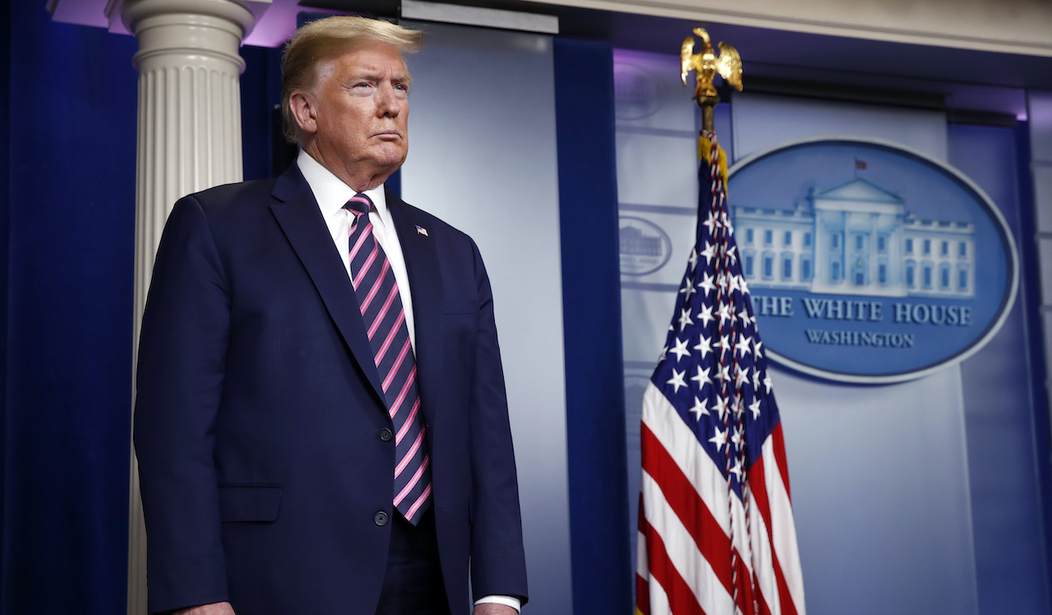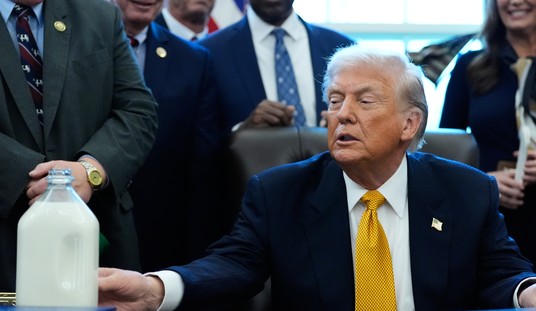As tends to be the case when a politician feels they have the upper hand on something, they warn opposing politicians against politicizing the issue. Last week, Gov. Cuomo relied on that strategy and simultaneously conveyed both the gravity and depth of his staked position by describing opposition to federal bailouts of states and localities as “dumb.”
Why should the people and taxpayers of America be bailing out poorly run states (like Illinois, as example) and cities, in all cases Democrat run and managed, when most of the other states are not looking for bailout help? I am open to discussing anything, but just asking?
— Donald J. Trump (@realDonaldTrump) April 27, 2020
His calculation is likely that he can successfully paint, in a time of relative national unity, opposition to these bailouts as the result of a blinkered partisan outlook that he can rise above, versus a fundamental disagreement on core features of American governance. That calculation appeared correct heading into the weekend, and the chyron-consensus began to emerge as headlines assured us that Senate Majority Leader McConnell faced the to-be-dreaded “bipartisan backlash.” The verb “slams” was used, but as of yet no appearance of “destroyed.” However, Trump's Monday tweet serves to both ensure that the debate will be lively and that it will eventually break down in all the expected ways.
Two points are critical to remember amidst the coming back and forth in the media. The first is that this debate is years in the making, though the smart money was on Illinois at the heart of it versus New York. The pandemic has simply sped the onset of the debate. Secondly, that while this issue will hit all the predictable partisan rhythms, it is in fact hard to overstate what is at stake.
This is not about offsetting lost tax revenue. States have their own taxing authority, and any money the federal government doles out is siphoned from citizens who happen to reside in, you guessed it, one of our fifty states. Each of those citizens is subject to the unique state-tax regime there and, debt deniers aside, those same citizens in those same states will be the very ones upon whom the federal government will need to raise taxes later, or more likely their grandchildren or whatever distant generation we’ve at this time pinned our national credit card bill on.
Recommended
What is at stake is the future of the Democratic party, and the blue-state model of governance itself. Dramatic, it all sounds. But both the Democratic Party and the blue-state model are sustained via a devil’s bargain in which party politicians funnel state funds to public sector unions via pension agreements for which the math does not and never really did work. Those members turn right back around and put that money into the coffers of those same Democratic Party politicians who further promise to keep the cycle going.
This is not just the maintenance of the patronage system the Democratic Party openly relies on, buying individual votes of public sector union members and the general public the old-fashioned way. It’s something more obscene, because the very dollars we’re referring to come from the taxpayers themselves. The American people are helping fund one of our two political parties, and they are doing so by contributing to pensions they themselves have no hope of attaining. This spin cycle is what we would, in any other country, call corruption.
And like every devil’s bargain, the costs will come due.
There is a fair argument for continued federal reimbursement of small businesses and hard-hit medical systems. But sometimes the localized and immediate pain of a crisis needs borne locally and immediately, or we will not be able to manage our blown out budget even with the “printing press” that Gov. Hogan (R-MD) invokes. Post-San Bernardino, post-Jefferson County, post-Detroit: if the federal government starts providing bailouts to states and municipalities, it will never stop. It will, however, further speed the elimination of a dual sovereignty that hangs by a thread and add mightily to the generational resentment of a youth whose futures we have already largely confined by our current choices, one saddled with unsustainable debt by a voting public who only qualify candidates for the presidency aged 70 and above.
If you ever wonder why a country that poll after poll shows is center-right has such close elections, one of the reasons is this very debate. The party of the state maintains itself with the help of your money and does so with an expectation that the federal government will eventually cover the tab they run up when in state office. This was always the bet they were making. And if an activist federal government uses taxpayer dollars collected around the country to take the unprecedented and constitutionally-dubious step of ensuring that individual state, city, or municipality-level pension funds are shored up, the blue state model will become the American norm in a race to the bottom.
If we can muster the courage to avoid this fate, to hold the line and endure the painful consequences of our own actions, not only will we prove morally stronger as a country but the edifice of irresponsible public spending that has sustained the Democratic Party will face the reckoning it requires. We can, just maybe, try to begin to claw our way out of the generational debt we have already assumed and that is our life’s work to pay down.
Blue state politicians will have to face up to the hard choices they’ve so long avoided, and the Democrat coalition might look different after the process; honesty about the limitations of its agenda will have that effect. Citizens in these states will have to grapple with the painful reality that Stockton and other cities have faced: choosing between meeting the obligations they’ve committed to, those pensioners do deserve what was promised, and the degradation of current public service provision to meet the needs of equally deserving taxpaying families. That is a tricky question, and the answer for each community will be different.
We live in an era in which very few attractive public policy options remain available to us on any number of issues. When we describe pressing public policy issues, our neglect is usually what led to the label “pressing” in the first place. Only hard choices remain, with pain inescapable in both the individual and collective. That pain and the accompanying consequences for each state will impact their relationship with our political union in trying ways. But the federal government is a very blunt instrument, and we should be humble in how we wield it. This is one instance, rare it seems to so many of us these days, in which the federal government should not play a role other than to consider passing legislation allowing states to declare bankruptcy.
If the states are to remain the laboratories of our democracy, the experiments they are conducting require results. Results experienced and heeded. If the states cannot keep their own books, they are no longer sovereign. Over the long term, their role as sovereign states who enter willingly and with comity into a political union also requires that they not be forced to pay each other’s debts.
























Join the conversation as a VIP Member